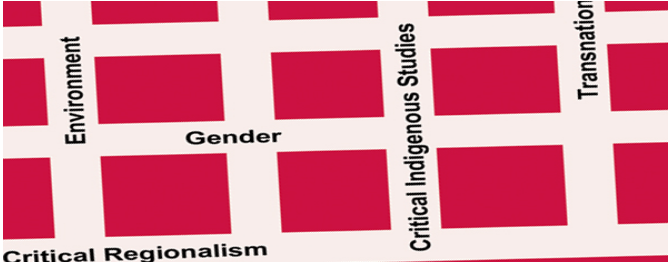
American Studies ETDs
Publication Date
2-9-2011
Abstract
Autoethnography is the genre through which many marginalized groups write back to hegemony (Pratt 1992, 7). It is no wonder then that one of the modes in which Mexican Americans choose to express themselves and represent their communities is autoethnography. However, the study of Mexican American autoethnography reveals a more complicated dynamic occurring in its formation. This dynamic goes beyond binary constructions such as periphery (Mexican Americans) versus center (Euroamerican) to illuminate the shifting structure of Mexican American history as well as the shifting structure of Mexican American subjectivity. I argue Mexican American life narratives use autoethnographic methods to inform their life narratives. Additionally, I argue Mexican American autoethnographic life narratives use ghosts as a medium through which to address the formation of Mexican America. One reason Mexican American life narratives employ ghosts is because in many instances, but not all, ghostly bodies signify the dead. "The dead . . . and their relations are perhaps the most lawless, unruly, and potentially revolutionary inhabitants of any imagined territory, national or otherwise" (Holland 2000, 23). While I believe that to exact a mode of revolutionary resistance is one of the reasons the dead, their ghosts and hauntings make their presences felt in the narratives of marginalized peoples in the United States, I also argue that these ghostly presences menace not only dominant society, but "other" societies as well. The ghosts of the U.S.-Mexico border disturb the dominant narrative of the United States. They disrupt binaries between Mexico and the United States by bringing to light contradictory desires that many present-day Mexican Americans would like to ignore. These desires make their presence known here and in each case the Mexican American autobiographer uses the ghost or absent presence of the ghost to illuminate the gap between the formation of Mexican American subjectivity as a unifying force and the formation of Mexican-American subjectivity as the fragmented force it often is. My dissertation addresses not only the fragmentation of Mexican American subjectivity, but also locates its productive potential and reveals what our haunted life narratives add to the study of our America.
Project Sponsors
Center for Regional Studies at the University of New Mexico, Office of Graduate Studies at the University of New Mexico, Southwest Hispanic Research Institute at the University of New Mexico
Language
English
Keywords
Mexican American Literature, Autobiography, Autoethnography, U.S.-Mexico Border
Document Type
Dissertation
Degree Name
American Studies
Level of Degree
Doctoral
Department Name
American Studies
First Committee Member (Chair)
A. Gabriel Meléndez
Second Committee Member
Rebecca Schreiber
Third Committee Member
Michael L. Trujillo
Fourth Committee Member
José E. Limón
Recommended Citation
Perea, Patricia Marie. "Ghostly I(s)/Eyes: The Formation of Subjectivity in Mexican American Life Narratives." (2011). https://digitalrepository.unm.edu/amst_etds/34
